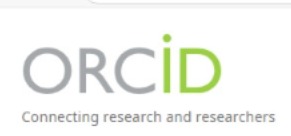Development Of Islamic Personality In The Digital Era With A Monotheism-Based Character Education Model
Keywords:
: children's character education, educational model, personality development, monotheistic education, digital eraAbstract
Children's character education in the modern era faces increasingly complex challenges, especially with the development of technology and changes in social values. Many current approaches to character education tend to be secular and lack attention to the spiritual values that are essential in shaping a child's personality. The monotheistic paradigm, which emphasizes the oneness of Allah as the foundation of life, has the potential to fill this void by offering a holistic approach to building a strong character and integrity. Although many studies have discussed character education, there is still a lack of research that specifically integrates the monotheistic paradigm into children's character education curriculum, especially in modern contexts influenced by technology and rapid social change. This problem is the focus of research to identify how monotheistic values can be applied practically in character education. This study uses a qualitative method with a literature review approach. Data were collected through in-depth interviews with educators, parents, and students, as well as field observations at educational institutions that integrate Islamic values in learning. Data analysis was carried out thematically to identify the most effective elements of monotheism in shaping children's personalities. This study found that the development of a monotheism-based child's personality can increase integrity, empathy, honesty, and a sense of responsibility. This paradigmatic personality balances the aspects of faith and social responsibility so that individuals who prioritize justice, trust, and devotion to Allah, become rahmatan lil 'alamin with the role of caliph and servant of Allah. The development of a monotheism-based personality is implemented through 1) habituation of moral character, 2) understanding of human nature as 'Abd Allah, 3) strengthening the attitude of tawakal and effort and 4) implementation of the values of justice and equality in educating children. The challenges of the implementation of Tawhid in the Modern Era include the influence of technology and social media, which have the potential to distance children from the values of monotheism and the influence of the social environment, especially in an environment that does not support religious values
References
[1] I. Suntana and B. Tresnawaty, “Civil implications of studying political science: Comparative study of students in religion, law, communication, and political sciences at the State Islamic …,” … Study Students Relig. Law …, 2019.
[2] W. D. Andriyani, I. Salsabila, Y. Suparmika, H. K. Syammach, and N. Azizah, “Ragam Pendekatan Bimbingan Konseling,” J. Pendidik. Indonesia. Teor. Penelitian, dan Inov., vol. 2, no. 4, pp. 234–241, Sep. 2022, https://doi.org/10.59818/jpi.v2i4.234.
[3] S. Anwar et al., “Development of the concept of Islamic education to build and improve the personality of school-age children,” Multidiscip. Rev., vol. 7, no. 8, p. 2024139, May 2024, https://doi.org/10.31893/multirev.2024139.
[4] A. A. Muis, “Konsep pendidikan islam dalam membentuk kepribadian Muslim (The Concept of Islamic Education in Forming Muslim Personality),” vol. VII, pp. 1–8, 2018.
[5] A. Silahudin, “Perbandingan Konsep Kepribadian Menurut Barat Dan Islam,” Al-Fikra J. Ilm. Keislam., vol. 17, no. 2, p. 249, Jan. 2019, https://doi.org/10.24014/af.v17i2.6343.
[6] T. Anggraini, A. Wulandari, H. S. Bella, and T. W. Anggraini, “Dampak lingkungan sosial terhadap perkembangan psikologi anak,” Naut. J. Ilm. Multidisiplin, vol. 2, no. 4, pp. 216–225, 2023.
[7] I. N. Andriyani, “Pendidikan Anak dalam Keluarga di Era Digital,” Fikrotuna, vol. 7, no. 1, pp. 789–802, 2018, https://doi.org/10.32806/jf.v7i1.3184.
[8] Z. A. S. A. Saefurrujal, “Tauhid sebagai dasar pendidikan karakter perspektif al qur’an dan al-hadits,” no. April 2024, pp. 18–26.
[9] M. Hambal, “Pendidikan Karakter Berbasis Tauhid (Analisis Terhadap al-Qur’an Surat Luqman Ayat 12- 19 Dalam Tafsir Ibnu Katsir),” Tadarus, vol. 10, no. 1, pp. 39–49, 2021, https://doi.org/10.30651/td.v10i1.8487.
[10] T. Mukmin, “Tauhid Dan Moral Sebagai Karakter,” el-Ghiroh, vol. X, pp. 1–34, 2017.
[11] H. Basri, “Integrasi Nilai-nilai Tauhid pada Pelajaran Sains bagi Siswa Sekolah Dasar Islam Terpadu,” Tadabbur J. Perad. Islam, vol. 3, no. 1, pp. 164–179, 2021, https://doi.org/10.22373/tadabbur.v3i1.153.
[12] M. Khoiruddin, “Integrasi Kurikulum Pesantren dan Perguruan Tinggi,” Cendekia J. Kependidikan Dan Kemasyarakatan, vol. 17, no. 2, pp. 219–234, 2019, https://doi.org/10.21154/cendekia.v17i2.1526.
[13] G. Mustikaningrum, L. Pramusinta, S. Ayu, and M. Umar, “The Implementation of Character Education Integrated To Curriculum and Learning Methods During Covid-19 Pandemic,” AULADUNA J. Pendidik. Dasar Islam, vol. 7, no. 2, pp. 154–164, 2020, https://doi.org/10.24252/10.24252/auladuna.v7i2a5.2020.
[14] S. Zubaidah, “Pendidikan Karakter Terintegrasi Keterampilan Abad Ke-21,” J. Penelit. dan Pengkaj. Ilmu Pendidik. e-Saintika, vol. 3, no. 2, p. 1, 2019, https://doi.org/10.36312/e-saintika.v3i2.125.
[15] A. Prihatmojo and B. Badawi, “Pendidikan Karakter di Sekolah Dasar Mencegah Degradasi Moral di Era 4.0,” DWIJA CENDEKIA J. Ris. Pedagog., vol. 4, no. 1, p. 142, 2020, https://doi.org/10.20961/jdc.v4i1.41129.
[16] R. A. Fawwaz, M. A. Gustalika, T. Informatika, M. Interaktif, M. Development, and L. Cycle, “Rancang Bangun Aplikasi Pembelajaran Doa Islami Dengan Pendekatan Multimedia Interaktif Menggunakan,” vol. 11, no. 3, pp. 122–135, 2024.
[17] F. Hikmawati, Metodologi Penelitian, vol. 11, no. 1. 2019.
[18] R. B. J. L. Christensen, Educational Research Quantitative, Qualitative and Mixed Approaches, vol. 11, no. 1. 2019.
[19] L. M. and K. M. Louis Cohen, Research Methods in Education. 2015.
[20] NF Andhini, Metode Penelitian Kualitatif Dan Kuantitatif., vol. 53, no. January. 2017.
[21] E. a. Fiantika, Wasil M, Jumiyati, Honesti, Wahyuni, Jonata, Metodologi Penelitian Kualitatif. In Metodologi Penelitian Kualitatif, no. Maret. 2022.
[22] Wahyuni, “Tauhid dan Moral Sebagai Karakter Utama dalam Pendidikan Islam,” Integr. J. Stud. Islam dan Hum., vol. 1, no. 3, pp. 153–166, 2023.
[23] D. Barnat, “Between Religion and Psychotherapy: Responses to Violence in a Secular Age,” Religions, vol. 13, no. 9, 2022, https://doi.org/10.3390/rel13090860.
[24] W. E. Wahyudi and dkk, Diskursus Filsafat Pendidikan Barat dan Islam. 2018.
[25] L. Oudes-Slob, M. Dobber, C. van der Veen, and B. van Oers, “Developmental Education in Dutch primary schools: Review of research outcomes from a CHAT-based teaching approach,” Learn. Cult. Soc. Interact., vol. 32, no. December 2021, p. 100596, 2022, https://doi.org/10.1016/j.lcsi.2021.100596.
[26] E. Setiyowati, “Pembentukan Kepribadian Islami Pada Anak Usia Dini,” Al-Mabsut, vol. 14, no. 2, pp. 159–163, 2020.
[27] Dwi Tri Andiyanto, “Peran Pendidik Agama Islam Terhadap Pembentukan Kepribadian Anak Usia Dini,” vol. 01, no. 2, pp. 1–23, 2016.
[28] Akmal Mundiri IAI, The Leadership of Headmaster in Building a Work Culture Based on Pesantren, vol. xxi, 1335, no. November. 2016.
[29] U. D. Hafid et al., “Dr. Marzuki, M.Ag. Prinsip Pendidikan Karakter Perspektif Islam.,” Braz Dent J., vol. 7, no. 1, pp. 78–90, 2021, https://doi.org/10.53649/jutau.v14i01.309.
[30] A. Musyarof, F. Tarbiyah, D. A. N. Keguruan, U. I. Negeri, and R. I. Lampung, “Konsep Pdd Karakter Dalam Prsepektif Islam,” 2021.
[31] M. A. Ma`arif and M. H. Rofiq, “Dzikir Dan Fikir Sebagai Konsep Pendidikan Karakter: Telaah Pemikiran Kh. Munawwar Kholil Al-Jawi,” Tadrib, vol. 5, no. 1, pp. 1–20, 2019, https://doi.org/10.19109/tadrib.v5i1.3066.
[32] A. Haris, “Keimanan Sebagai Nilai Etika Inti Penidikan Karakter,” Al Munawwarah J. Pendidik. Islam, vol. 8, no. 2, pp. 1–14, 2016, [Online]. Available: http://ejournal.kopertais4.or.id/sasambo/index.php/munawwarah/article/view/3247
[33] R. A. Syam, T. A. Hutama, I. Subekti, A. Nareswara, F. Bariyah, and R. Aulia, “The Relationship of Islamic Law and Ethics in Pharmacist Practice : A Literature Review,” Solo Int. Collab. Publ. Soc. Sci. Humanit., vol. 1, no. 3, pp. 173–180, 2023.
[34] S. Anwar, “Pendidikan Karakter Prespektif Islam (Pemikiran Al-Ghazali Dan Ibnu Maskawaih),” J. Pedagog., vol. 21, 2022.
[35] S. Daulay and R. A. Dalimunthe, “Modernisasi Pendidikan Islam Di Indonesia (Komparasi Pengalaman Organisasi Muhammadiyah dan Nahdlatul Ulama),” Fitrah J. Islam. Educ., vol. 2, no. 2, pp. 125–140, 2021, https://doi.org/10.53802/fitrah.v2i2.70.
[36] Rifki El-Faizal and Mulya, “Islamic Child Personality Education Concepts By Al-Ghazali,” MAQOLAT J. Islam. Stud., vol. 1, no. 1, pp. 6–11, 2023, https://doi.org/10.58355/maqolat.v1i1.2.
[37] D. R. Dewi, N. Nadlir, S. Sibawaihi, and S. Sabarudin, “The Concept of Personality of Islamic Religious Education Teachers based on Kuntowijoyo’s Prophetic Social Science,” J. Pendidik. Agama Islam (Journal Islam. Educ. Stud., vol. 10, no. 1, pp. 1–26, 2022, https://doi.org/10.15642/jpai.2022.10.1.1-26.
[38] S. Suparno, “Konsep Penguatan Nilai Moral Anak Menurut Kohlberg,” ZAHRA Res. Tought Elem. Sch. Islam J., vol. 1, no. 2, pp. 58–67, Sep. 2020, https://doi.org/10.37812/zahra.v1i2.124.
[39] M. L. Chakim, “Menumbuhkan Budaya Jujur Mahasiswa,” Semin. Nas. Pascasarj. 2019, vol. 2, no. 1, pp. 469–473, 2019.
[40] I. Trisakti et al., “Development and Thinking of Classical Islamic Pharmacy Towards a Progressive and Sustainable Pharmacy,” vol. 1, no. 2, pp. 107–118, 2023.
Downloads
Published
How to Cite
Issue
Section
License
Copyright (c) 2024 Sholihul Anwar, Siti Rosyidah, Sukisno Sukisno

This work is licensed under a Creative Commons Attribution-ShareAlike 4.0 International License.






